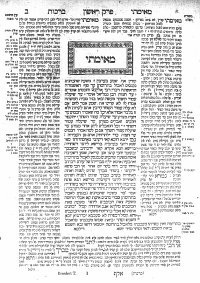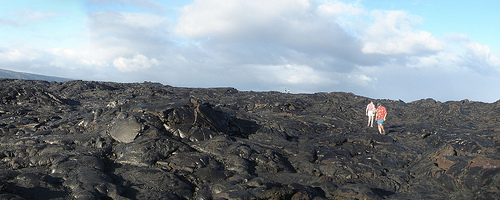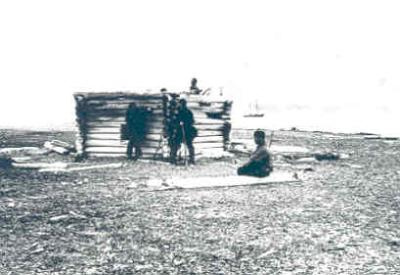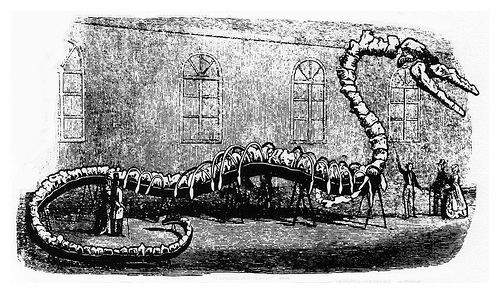In December 2005, tired of endless credit-card offers, West Hollywood realtor Gary More scrawled NEVER WASTE A TREE across one application and mailed it in.
Chase Visa issued a card to “Never Waste Tree.”
He cut it up.
In December 2005, tired of endless credit-card offers, West Hollywood realtor Gary More scrawled NEVER WASTE A TREE across one application and mailed it in.
Chase Visa issued a card to “Never Waste Tree.”
He cut it up.
More notable errors in the New York Times:
See also Erratum.

Writing in Psychological Review in 1917, Berkeley psychologist George Stratton reported the startling achievements of Jewish scholars known as Shass Pollaks, who would memorize the entire Babylonian Talmud — not just the text, but the position of every word on every page:
“A pin would be placed on a word, let us say, the fourth word in line eight; the memory sharp would then be asked what word is in the same spot on page thirty-eight or fifty or any other page; the pin would be pressed through the volume until it reached page thirty eight or page fifty or any other page designated; the memory sharp would then mention the word and it was found invariably correct. He had visualized in his brain the whole Talmud; in other words, the pages of the Talmud were photographed on his brain. It was one of the most stupendous feats of memory I have ever witnessed and there was no fake about it.”
Stratton also quotes Judge Mayer Sulzberger of Philadelphia, who had seen a Shass Pollak put down a pencil at random in the Talmud and immediately name the word on which it had lighted.
These achievements, Stratton wrote, “should be stored among the data long and still richly gathering for the study of extraordinary feats of memory.”
Ben Greenblatt, popular piano stylist, has played for every kind of society party, but this week marked the first time that his audience consisted of monkeys. He ‘gave’ at the Philadelphia Zoological Gardens just to see how the chimpanzees would react to his Steinway. …
Checking upon the reaction of animals to music has been tried periodically ever since the zoo opened its gates 70 years ago. Once an elephant nearly sprayed a jazz band with a trunkful of water, and on another occasional Tommy Dorsey nearly lost his trombone when an inquisitive chimpanzee tried to take it apart to see what made it tick.
— Billboard, April 1, 1944

Every year, thousands of tourists pass through Hawaii Volcanoes National Park, and many collect sand or rocks as souvenirs. And every year, thousands of people mail them back, reporting mysterious misfortunes:
According to legend, the volcano goddess Pele punishes those who steal from her. Timothy Murray took home some sand in 1997, and his pet died, his fiancee left him, he started to drink, and the FBI arrested him in a copyright infringement case. “One minute you’re working and you’re law-abiding and you’ve got money in the bank,” he told the Los Angeles Times. “The next minute you are sitting in a federal penitentiary in Miami.”
“People need something to blame their troubles on,” says local postmaster Dave Kell, who notes that much of what is sent back is not even from Hawaii. “They bring this stuff on themselves.”
What does he know? If the fire goddess is oppressing you, mail your guilty rock to this return service and they’ll wrap it in a ti leaf and return it to Pele with a propitiating orchid. Better safe than sorry.

Cincinnati has a subway. Or, rather, the abortive beginnings of one. The digging began in 1920, when streetcars couldn’t keep up with the city’s growing population. But cost overruns and the advent of the automobile gradually turned it into a white elephant. In all, seven miles were prepared, but no cars were ever ordered.
In the years since 1925, when construction stopped, the empty tunnel has been proposed for use as an air-raid shelter, a storage area, a mall, a film set, a wind tunnel, and a wine cellar, but none of these received approval. Instead the entrances have been sealed with concrete, and it remains simply the nation’s largest abandoned subway tunnel.
If enough time passes, perhaps it will be forgotten entirely. Intriguingly, this has happened before.
In 1987, University of Illinois freshman Mike Hayes wrote to Chicago Tribune columnist Bob Greene with a modest proposal: that each of Greene’s readers contribute a penny to finance his education.
“Just one penny,” he told Greene. “A penny doesn’t mean anything to anyone. If everyone who is reading your column looks around the room right now, there will be a penny under the couch cushion, or on the corner of the desk, or on the floor. That’s all I’m asking. A penny from each of your readers.”
Greene published the appeal in 200 newspapers via his syndicated column — and Hayes received 77,000 letters and enough pennies to break his bank’s coin-counting machine three times. He easily reached his goal of $28,000, enough for four years of tuition, room and board, and books.
He graduated with a degree in food science. Asked why the scheme worked, he said, “I didn’t ask for a lot of money. I just asked for money from a lot of people.”

In 1871, a Norwegian seal hunter discovered a wooden hut on Novaya Zemlya in the Arctic Ocean. In it he found clothing, cooking pots, a tool chest, a clock, a flute, a cooking tripod, and several pictures.
It was the lodge of Willem Barentsz, who had passed the winter there in 1597 while seeking a northern route to China. Barentsz had died on the return journey, and the hut had stood for 270 years, awaiting rediscovery.
According to an 1877 report, later investigations recovered Barentsz’s quill pen, a translation of a work on seamanship printed in 1580, “some candles nearly 280 years old, but still capable of giving light” — and “the Amsterdam flag, the first European colour that passed a winter in the Arctic region.”

In 1840, Albert Koch made a sensation in London with the “Missouri Leviathan,” an enormous monster whose remains he purported to have discovered in Benton County, Mo. It turned out to be “a mastodon preposterously mounted.” From Scribner’s Magazine:
Koch had added an extra dozen or more joints to the back-bone and ribs to the chest, turned the tusks outward into a semicircle, and converted the animal into an aquatic monster which anchored itself to trees by means of its sickle-shaped tusks and then peacefully slumbered on the bosom of the waves.
The British Museum bought this up and, sniffing, reassembled it into a mastodon. Koch only warmed to his work — in Alabama he turned up the remains of two basilosauri and, writes Rupert Gould, arranged them to form “a serpentine creature 114 feet long, for which he manufactured, from any spare bones that were handy, a corresponding skull, ribs and paddles” (below). He had time to exhibit “Hydrarchos sillimani” in New York and Boston before outraged naturalists finally shut him down; the restored basilosaurs found a home in Berlin.

In 1987, the residents of Wilkinsburg, Pa., prepared to dig up a time capsule that had been buried in the last century. But no one could remember where it was.
In 1976, during the American bicentennial, a cross-country wagon train collected the signatures of a reported 22 million Americans to be buried at Valley Forge, Pa. But when President Ford arrived for the sealing ceremony, someone had stolen the capsule from an unattended van. It remains missing.
In 1939, MIT engineers deposited a brass time capsule beneath an 18-ton magnet used in a new cyclotron. No one has figured out how to retrieve it.
(Thanks, Luke.)